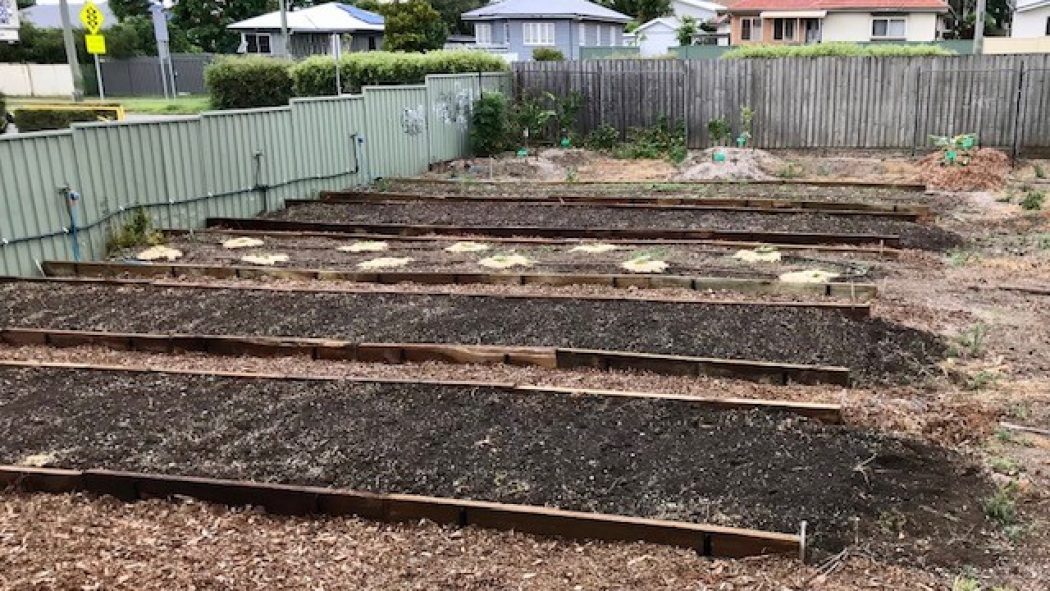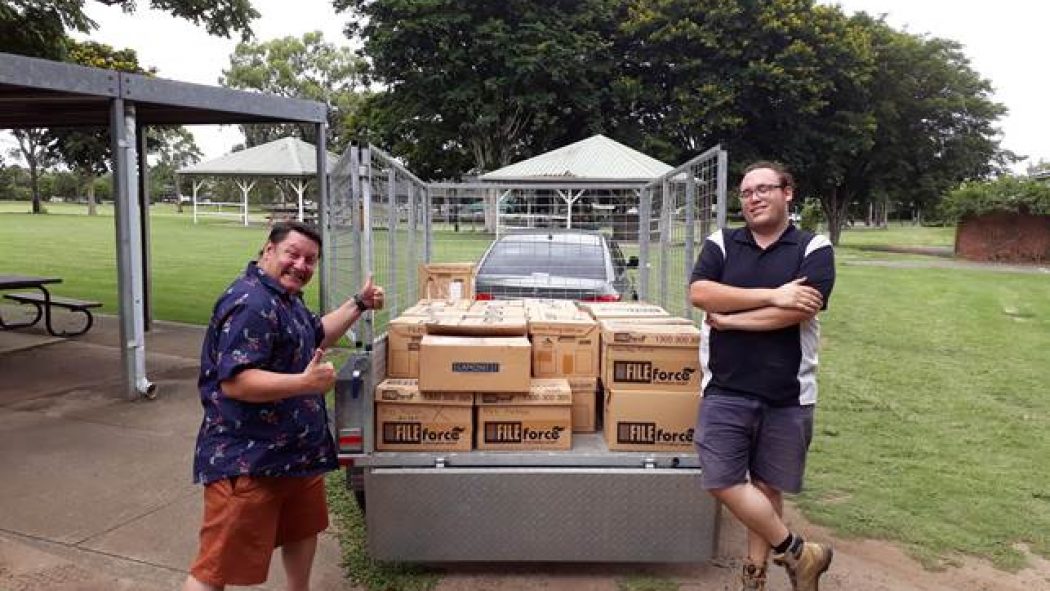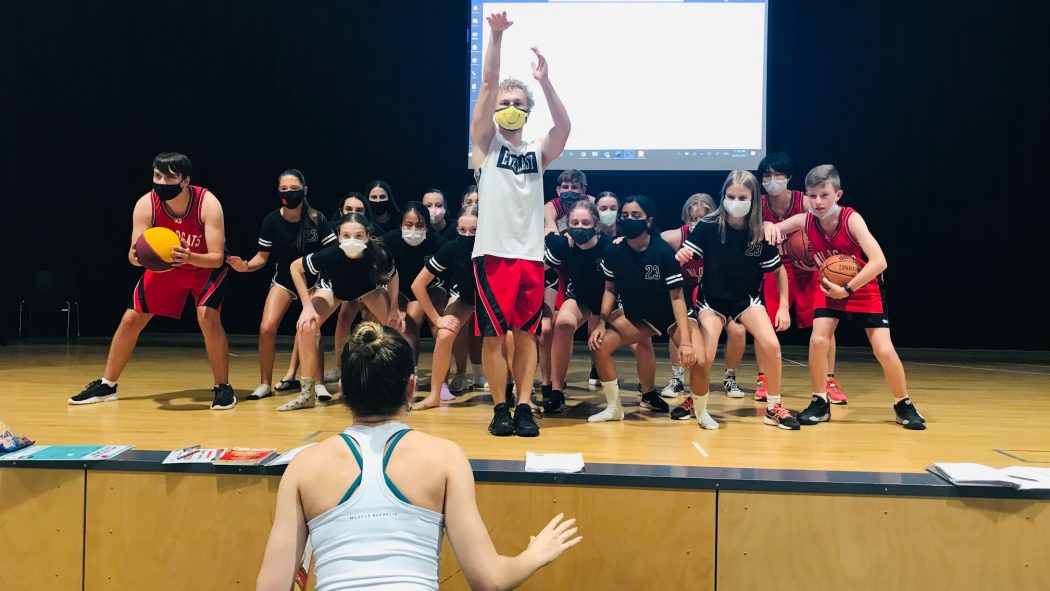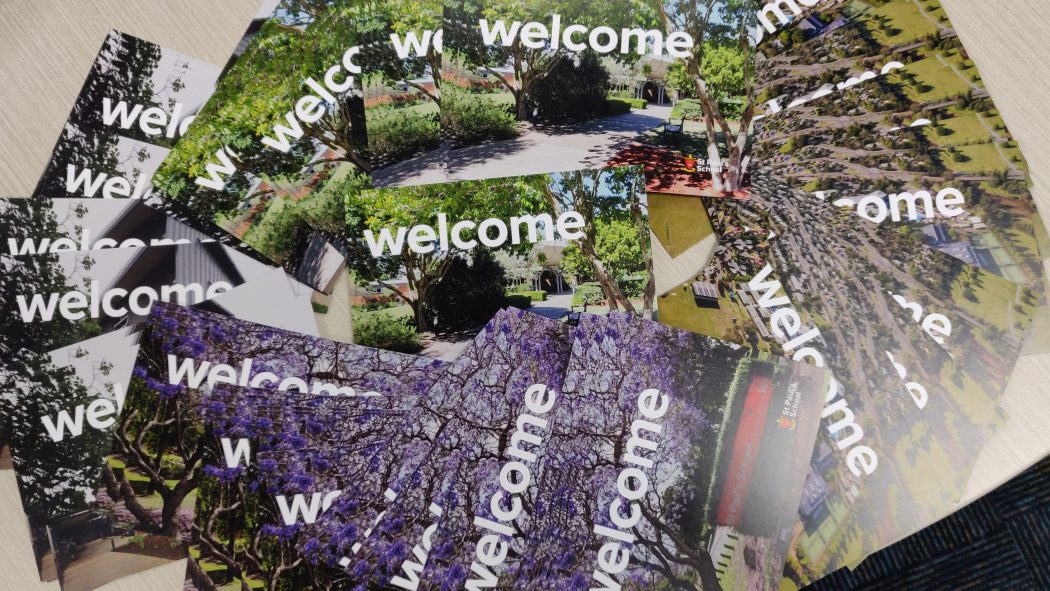There might be a little nerve-citement in your house at the moment. If your child is leaving behind primary school friends and transitioning to a new high school, the enormity of that transition might start to hit them once you begin buying school uniforms, shoes and textbooks. For those who are staying at the same school, the knowledge that school life (as they knew it) won’t return is still daunting to face.
Either way, the weeks before school returns can be an anxious time for our kids. It’s normal for them to think about the previous year’s disappointments or highlights. They might more strongly miss routines, friends or teachers. They might start having more “what if” conversations, as concerns begin to roll around in their head.
Firstly, let’s acknowledge that it is a big transition, and that some kids will find it easier than others. Leaving primary school means letting go of the familiar without fully knowing what will replace it. Unlike the transition into primary school (remember when they wore cute, tiny uniforms and we walked them to class!) they are well aware of the potential losses than can come with change.
So, how can we best help them?
Big picture first. I want you to step back for a moment and consider three things that kids NEED in order to thrive in high school. Early in my career I taught in alternative learning centres (for young people disengaged in regular school). EVERY TIME, one or more of these elements had broken down and led to explosion or truancy. That’s why I want you to safe guard these things. Hedge around them, and protect them, as they are foundational to the school experience.
They need to believe they can LEARN.
They need to feel as though they BELONG.
They need to see PURPOSE in the school experience.
Below I have included twelve of my top tips for those entering high school based on these three essential things. Each one is purposefully connected to them. I’ve tried to be practical, because that is what makes our homes go round each day!
Tip 1: So I Will Moves. Try and finish anxious conversations with positive, actionable ideas. I call them SO I WILL takeaways. (For example: I am worried about making new friends, SO I WILL…think about how I might start conversations with new people and remind myself that I can still connect with old friends). Together, you and your young one can create SO I WILL MOVES for anything including asking a teacher a question or catching public transport. And you can also revisit and practise these moves anytime.
TIP 2: Dial it Down. Way Down. Help them set realistic expectations for their first day. This might mean you have to dial down your enthusiasm. Instead of saying, “You are going to have a GREAT, AMAZING, FANTASTIC day” you might consider saying, “Today is going to be the beginning of a wonderful journey.” Sometimes our encouragement doesn’t leave a lot of room for the real ups and downs of school life.
TIP 3: The Work Station. Setting up a workstation on Sunday night is a great way to prepare for the week ahead. Remember that for ALL our kids, completing something feels good. Small wins, even if it is setting up their desk, will build their confidence. Helping them kick goals early in the year generates an “I can do this” vibe. So, focus on the little things. Claire Eaton talks about this concept in her book Hello High School, which is written especially for teens.
TIP 4: Just Do It. Many young people hit academic overwhelm very early in the year, and some don’t ever regroup. Term 3 becomes a compound of half completed assignments, under average grades and deteriorating communication with teachers. Much of the time, procrastination plays a big part in the downward spiral. Make a JUST DO IT pack with your young one. Doing things NOW (before gaming, before youtube, before over thinking and talking yourself out of it) will feel good!
TIP 5: The 20-min Homework Cycle. My youngest son doesn’t have great organisational skills, as you can see when you enter his bedroom. Homework was always a struggle in our home. He and I eventually managed to negotiate a 20-minute homework cycle, that we would set on repeat. He would spend 15 minutes studying, 5 mins boxing (yes, he had a boxing bag in his room) and 5 minutes eating. In between each cycle he would pause, chat, re-group and repeat. Is it a lot of fuss to get some homework done? Yes, but we couldn’t have gotten through school without the boxing bag and that sandwich maker.
TIP 6: Signing Up. All of our kids need to see that school is a safe place that they belong to. After all, they do spend much of their lives there! They don’t have to be the most popular or the best, but they do have to feel as though they are known, heard and seen. Getting involved in the community of school, by signing up to small groups and programs, is one way to connect with like-minded people and become a part of that community. Rebecca Sparrow does a beautiful job of explaining this to girls in her Ask Me Anything Podcast episode called – How Do I Make Friends at a New School?
TIP 7: A Broad Friendship Base. Getting to know a broad range of people (the broader the better) is so important in high schools. Besties are fine, but they need MORE than this in high school. According to Michael Carr Gregg and Sharon Witt, authors of Starting Secondary School, one of the greatest predictors of success in high school is a large friendship base. It offers them multiple levels of support. I also talk more about this in my book The Everyday Resilience Journal: A book for tweens about friendships, school work and growing up.
TIP 8: Friends Home Friday. May I encourage you to shift gears? Your teen’s social life needs to become your highest priority. I can assure you that it is about to be theirs. Prioritising a “get together” in the first week or two of the school term can kick things off to a good start. Say to your child, “If there is anyone you want to have over next week it’s okay with me”. That way, if the opportunity arises, you have already eliminated the need for them to ask you. Some families set up a Friends Home Friday routine which prompts their child to ask someone over.
TIP 9. Appreciating Teachers. For most kids, the learning experience in and of itself is not enough to keep them motivated. What makes all the difference is a strong connection to least one TEACHER who cares. Kids often learn through their teacher rather than through their subject. Please appreciate those high school teachers, especially those who connect with your child! Primary school teachers get bucket loads of gifts, but high school teachers often miss out. I think they need gifts even MORE. And keep lines of communication OPEN. If in doubt just ASK, or email. Good teachers appreciate that.
TIP 10. Get Realistic about Bedtime. This one can be complicated, and the reason why some schools opt for a later start to the school day. Teenager’s brains release melatonin (the hormone which makes us sleepy) about 2 hours later adults do. You might set bedtime at 9pm, and their body may set it at 11pm. Their melatonin also takes longer to wear off in the morning, so they will be sleepier for longer. All this usually calls for parents to have a lot of patience, especially in the morning. Set a realistic bedtime for YOUR child, and establish boundaries (like no phones in rooms after 8pm and a quiet bedtime routine to help their mind unwind.) They may also need to sleep in on the weekend as they are constantly accumulating a sleep debt.
TIP 11: One Thing About Tech. Year 6 students often get access to social media or have their own phone in the lead up to high school. It’s new. It’s exciting and opens up a whole lot of issues for them (and you)! Group texts, late-night emergency calls and friendship drama now make their way into our kid’s lives. It’s a lot for parents to manage and navigate, so prepare yourself and get educated. If there is ONE THING I’d like to you consider, it’s making sure they don’t have their phone in their room at night when they need to be sleeping. (They are not equipped to be Kids Help Line.) Without sleep, everything goes pear-shaped. I’ve written this free eBook Social Media and Your Tween for help out.
TIP 12: Keep Home the Hero. As they move into new environments and experience new things, the safe place called home is more important than ever, so protect your time together. It’s the baseline that allows them to journey into the world. Continue to place a priority on their relationship with siblings and special time with them. In fact, plan for it.
And lastly parents, all those small touches matter. A fancy set of lunchboxes, a new desk and bookcase, glitter pens (lol), plans for afternoon tea together after their first day, a newly predesignated place for bags, shoes and those pesky socks…. they all scream I’M BACKING YOU UP. There is nothing that comes close to that type of support.
I’m sending you and your family MUCH love as you start the school year. I’m here with you all the way! And if you are looking for more resources to support friendships, mindset and organisational skills, here are some that you might want to check out:
HELPFUL CONTACTS
 Dr Paul Browning
Dr Paul Browning


 Mr Nigel Grant
Mr Nigel Grant

 Mrs Marianne Connolly
Mrs Marianne Connolly



